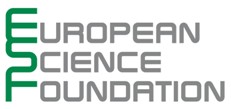The main objective of TEA is to develop an approach to embed equity assessment into the evaluation of transport investments and policies and, hence, in transport decision making.
TEA has three main purposes:
- develop innovative and comprehensive transport evaluation criteria accounting for distributional effects and accessibility
- include social and spatial factors in social welfare assessment by introducing the concept of gains of accessibility to key social activities. Specifically, the aim is to replace the traditional measure of time savings that favor better-off societal groups, with welfare and accessibility measures that cater for the needs of more vulnerable social groups. In this way, the social welfare function will be more equitable. Nahmias–Biran et al. (2012) are currently working on trying to quantify the measures of the distribution of urban transport accessibility
- devise a common European methodology that links equity indicators and social welfare maximization in order to promote equity considerations in transport decision making and to quantify the gains of an equal accessibility in a systematic way, identifying population groups across European countries with common problems and needs in terms of accessibility and attempt to incorporate these considerations into EU transport policy


